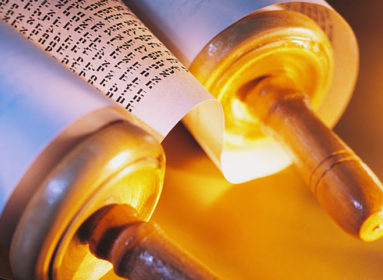By Shlomo Riskin
Noah may have been righteous and wholehearted as an individual, but he lacked the strength and the boldness to confront God’s decision and to oppose the wicked ways of the world.
“Noah was a righteous man, wholehearted in his generations; Noah walked together with God” (Gen. 6:9.) If, indeed, Noah was a righteous, wholehearted partner of God, why is he not the first Hebrew? He seems to have had all of the necessary qualifications.
The classical biblical commentary Rashi generally follows the midrash in praising every one of the biblical personalities. In the case of Noah, however, Rashi cites a midrash that turns great praise into shameful degradation.
While the Bible states unambiguously that Noah was “a righteous man, wholehearted in his generations,” Rashi comments, “And there are those who explicate this phrase to Noah’s detriment: In accordance with his generation, he was righteous; had he lived in the generation of Abraham, he would not have been considered anything at all” (Rashi, citing BT Sanhedrin 108).
Why this denigration when the Bible itself is so complimentary? Rashi and the midrash even take the next phrase, “He [Noah] walked together with God,” to indicate that Noah was lacking: “In the case of Abraham, the Bible says, ‘Walk before Me and be wholehearted’ (Gen. 17:1). Noah required Divine support to uphold him, whereas Abraham was strong and progressed with his righteousness on his own [without any need of external support]” (Gen. Raba 30:10). What could possibly cause these commentaries to overlook the positive and seek out the negative? The Maharal of Prague magnificently explains that Abraham and Noah each faced a similar challenge, but they reacted in radically different ways.
When God informs Abraham that he is going to destroy the wicked people of Sodom and Gomorrah, Abraham immediately challenges the decision and actually debates with the Lord Himself: “Will You then destroy the righteous with the wicked? Perhaps there are 50 righteous… will You destroy and not forgive the place because of those 50 righteous… [should] the Judge of the entire earth not act justly?… And perhaps there are 45… or 40… or 30… or 20… or 10?” (Gen. 18:23-32) Abraham charges God with injustice and then bargains with God as if the Almighty were a market vendor, in order to save the wicked city of Sodom.
But Noah, when confronted with the prospect of a flood destroying all of humanity, is quite satisfied to accept God’s decision and build an ark to save only himself and his immediate family. Noah’s lack of human sensitivity left him wanting in God’s eyes. That’s precisely what the midrash says: Had Noah lived in Abraham’s generation and been compared to him, he would not have been considered anything at all.
It goes even further than that, however. God actually gives in to Abraham’s demand. He says specifically, “I will not destroy [Sodom] because of even 10 righteous people” (Gen. 18:32). But as the Torah reports, there were not even 10 righteous in the city: “The men of Sodom surrounded the house [to sodomize the strangers], from the youth to the aged, the entire people from end to end [of the city]” (Gen. 19:4). God even invites Abraham to enter into dialogue with Him, saying, “Shall I hide from Abraham that which I am about to do?” (Gen. 18:17) God then goes on to declare that He has elected Abraham as the first Hebrew because of his sense of justice and righteousness, before inviting Abraham to argue with Him on the basis of these concepts (Gen. 18:18-22).
The point is clear: To be the elected of God, one must stand strong against the injustices of the world. God recognizes that the world is not perfect; He wants us to complete and perfect it. He wants us to force Him to intercede to make certain that the good and the compassionate triumph over the evil and the destructive. He doesn’t want us to accept the world as He created it; He doesn’t want us to accept human nature in the fullness of its evil potential. Noah apparently did not believe that humanity had the power to repent. Abraham believed that even Sodom was ultimately redeemable.
Noah may have been righteous and wholehearted as an individual, but he lacked the strength and the boldness to confront God’s decision and to oppose the wicked ways of the world. This characteristic is built into his name, which means “ease.” Rashi says that he received that name because he created an easier method of reaping wheat from the ground. God elects the one who challenges Him and is willing to go to war to fight the evil terrorists who captured Lot. God wants us to swim against the current, to put our lives on the line, in order to perfect the world in the Kingship of the Divine. That’s what it means to be a Hebrew (Ivri): to stand in opposition on one side (ever in Hebrew), even if everyone – even God – stands on the other.
Rabbi Shlomo Riskin is chancellor of Ohr Torah Stone and chief rabbi of Efrat, Israel.







 Southern New England Jewish Ledger
Southern New England Jewish Ledger














